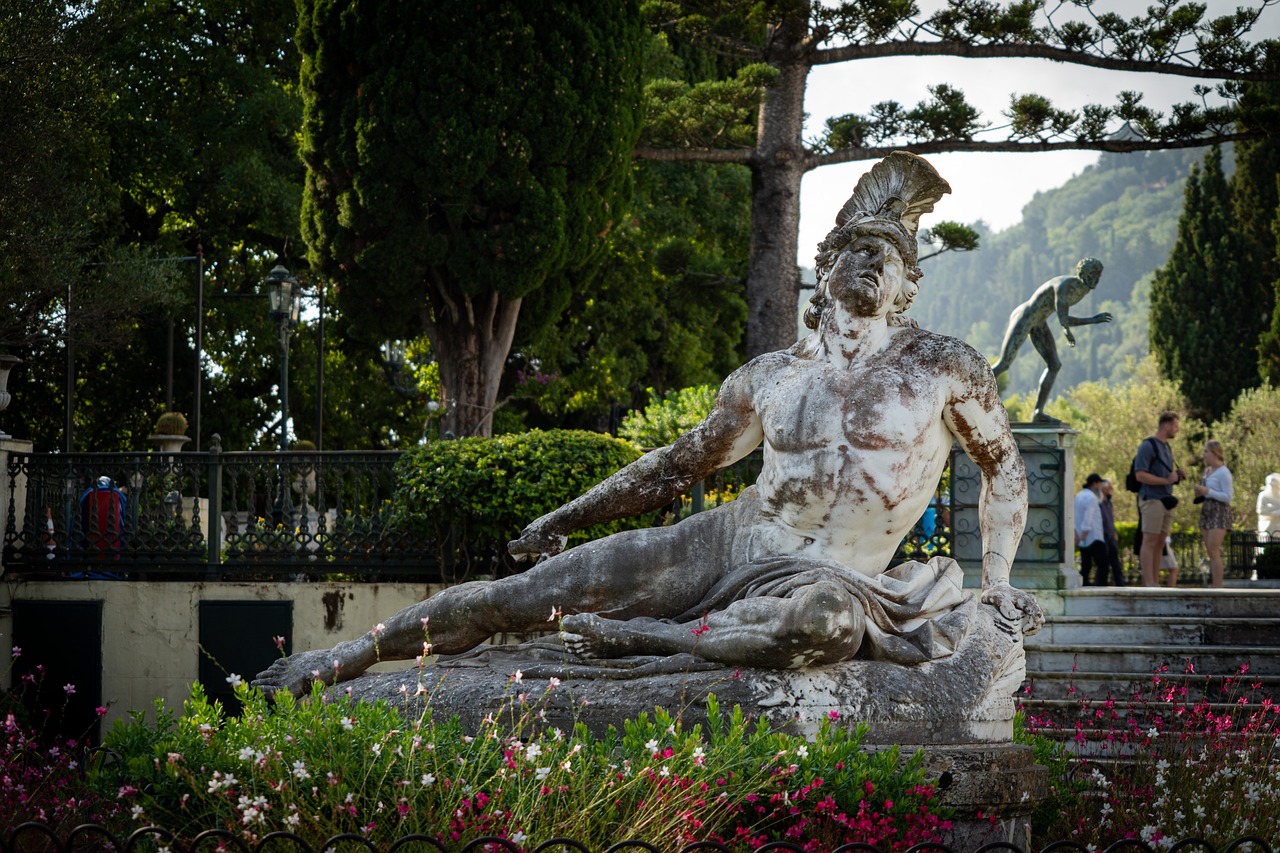The Trojan War: The Clash of Achilles and Hector
When Helen was taken to Troy by Paris, her husband Menelaus summoned the Greek leaders to help him reclaim her. This call to action ignited a war that many were hesitant to join, not wanting to sacrifice their lives or those of their soldiers for such a quarrel. Odysseus ultimately persuaded several warriors, including Achilles, to join the cause. To prevent Achilles from going to war, his mother, Thetis, disguised him as a girl and hid him among the daughters of a friendly king. However, Odysseus, disguised as a traveling merchant with jewelry and weapons, discovered him. Recognizing Achilles’ true nature, Odysseus declared, “Young man, your dress is that of a girl, but your eye is that of a man. You are Achilles, and you must go with me to Troy to battle.”
After two years of gathering ships and soldiers, they convened at Aulis, ready to set sail for Troy. The fleet soon arrived, marking the start of a brutal war that would stretch for nine long years, seemingly without end.
Tensions flared between Achilles and Agamemnon, the leader of the Greek forces and brother to Menelaus, over the distribution of war prizes. Agamemnon, as leader, sought to claim the best spoils for himself, while Achilles contested this since he had fought valiantly, unlike Agamemnon. Infuriated, Achilles threatened to withdraw from the battle and return to Greece. The gods who watched over the conflict took sides; Hera and Athena supported the Greeks, while Aphrodite favored the Trojans. Ares, the god of war, allied with Aphrodite, and Poseidon sided with the Greeks.
The fighting escalated as the Trojans continued to secure victory after victory, driving the Greeks back to their ships. The enemy’s advance threatened to burn the Greek vessels when Poseidon appeared as an oracle, instilling new resolve in the Greek warriors. Ajax, one of the Greek heroes, faced Hector from Troy. Hector hurled his spear at Ajax, but it did not wound him. Ajax retaliated by lifting a massive stone and throwing it at Hector, injuring him severely. Apollo was sent by Zeus to heal Hector, and soon he was back in the fight.
As the battle turned increasingly dire for the Greeks, many commanders suffered injuries or lost their lives. The Trojans pressed on, once again reaching the ships and preparing to set them ablaze. Patroclus, a beloved friend of Achilles, approached him and pleaded, “If you won’t join us, at least lend me your armor and men to fend off these attackers before they destroy our fleet.”
Achilles agreed, saying, “You may take my armor and troops to drive back the assailants, but do not pursue them further without my support.” The Trojans, believing they were facing Achilles himself, fled in terror as Patroclus led them. However, he would eventually encounter Hector, leading to a fierce duel in which Patroclus was killed. Hector then stripped Patroclus of Achilles’ armor and donned it.
Overcome with grief upon learning of Patroclus’ death, Achilles vowed to fight Hector and sought his mother for help. Thetis reminded him that he lacked armor. She hurried off to Hephaestus, who forged a set of new armor for her son, which was delivered at dawn. Clad in this formidable new armor, Achilles re-entered the fray, pushing the Trojans back behind their city walls.
Only Hector stood to face Achilles, but as he witnessed Achilles’ approach, he turned to flee. Achilles pursued Hector three times around the city before they finally clashed. Achilles’ spear found its mark, and Hector fell to the ground. After stripping Hector of his armor, Achilles tied his body to his chariot and dragged it through the dirt around the city walls, a sight that plunged Hector’s family and the Trojans into deep mourning.
The Greeks honored Patroclus by cremating his body with great ceremony, while Hector’s remains lay abandoned on the battlefield. Priam, Hector’s father and the king of Troy, packed valuable treasures and rich garments into a chest, with assistance from the gods, as he sought to negotiate for his son’s body with Achilles. His offer was accepted, allowing Hector’s remains to be returned, where they were grieved over and given a grand funeral.
Questions for Reflection
- Who is Odysseus?
- Who is Achilles?
- How does Odysseus discover Achilles’ whereabouts, and disguised as what?
- Who are the Trojans?
- Which gods participated in the Trojan War, and which side did they join?
- Who is Ajax?
- Who is Hector?
- How does Achilles feel about participating in the war?
- What events triggered Achilles’ intense anger?
- How does Achilles seek vengeance against Hector?
Illustrative Comparison
- What scene from the tale is illustrated in the painting by Benjamin West (1806)? Which characters can be recognized?
- What moment from the story is depicted in John Flaxman’s illustrations incorporated into “The Story of the Iliad” by Alfred John Church (1895)?
Fun Fact
There’s a popular soap brand named Ajax. Research its origins and find out why the brand adopted this name.



